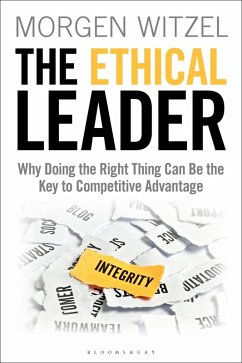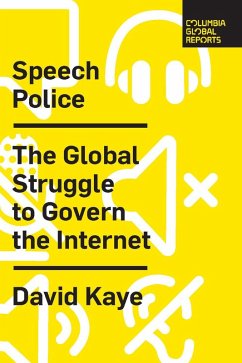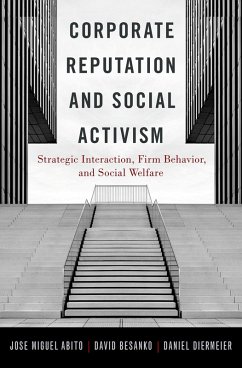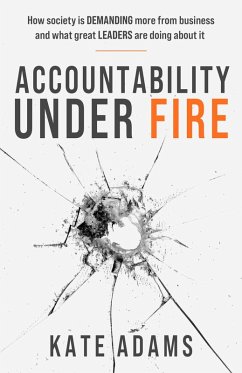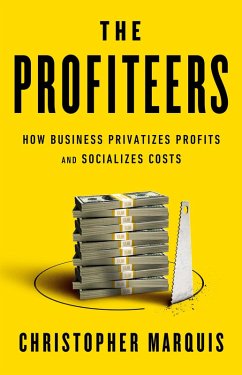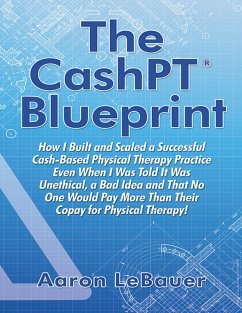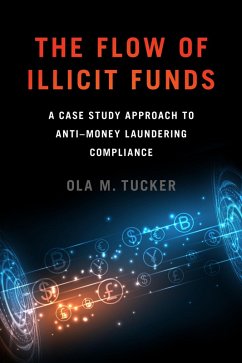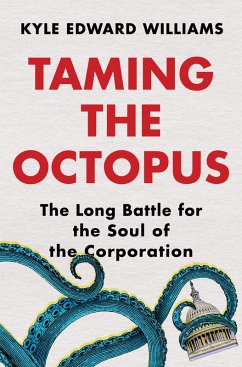
When Principles Pay (eBook, ePUB)
Corporate Social Responsibility and the Bottom Line

PAYBACK Punkte
8 °P sammeln!
Stories of predatory lending practices and the reckless destruction of the environment by greedy corporations dominate the news, suggesting that, in business, ethics and profit are incompatible pursuits. Yet some of the worst lenders are now bankrupt, and Toyota has enjoyed phenomenal success by positioning itself as the green car company par excellence. These trends suggest that antisocial corporate behavior has its costs, especially in terms of the stock market, which penalizes companies that have poor environmental track records and rewards more socially conscious brands.The political conte...
Stories of predatory lending practices and the reckless destruction of the environment by greedy corporations dominate the news, suggesting that, in business, ethics and profit are incompatible pursuits. Yet some of the worst lenders are now bankrupt, and Toyota has enjoyed phenomenal success by positioning itself as the green car company par excellence. These trends suggest that antisocial corporate behavior has its costs, especially in terms of the stock market, which penalizes companies that have poor environmental track records and rewards more socially conscious brands.
The political context of our economy is rapidly changing, particularly in regard to incentives that operate outside the marketplace in a strict and narrow sense and involve interactions between corporations and nongovernmental organizations (NGOs), activist groups, regulatory bodies, consumers, and civil society. These interactions can significantly color a corporation's alternatives, making socially or environmentally harmful behavior much less attractive. British Petroleum, for example, has voluntarily reduced its greenhouse gas emissions over the past ten years, Starbucks, has changed the environmental impact of its coffee production, and Nike and other footwear and textile makers now monitor the labor conditions of their subcontractors.
When Principles Pay jumps headfirst into this engaging and vital issue, asking whether profit maximization and the generation of value for shareholders is compatible with policies that support social and environmental goals. Geoffrey Heal presents a comprehensive examination of how social and environmental performance affects a corporation's profitability and how the stock market reacts to a firm's social and environmental behavior. He looks at socially responsible investment (SRI), reviewing the evolution of the SRI industry and the quality of its returns. He also draws on studies conducted in a wide range of industries, from financials and pharmaceuticals to Wal-Mart and Monsanto, and focuses on the actions of corporations in poor countries. In conclusion, Heal analyzes how social and environmental performance fits into accounting and corporate strategy, presenting an executive perspective on the best way to develop and implement these aspects of a corporation's behavior.
The political context of our economy is rapidly changing, particularly in regard to incentives that operate outside the marketplace in a strict and narrow sense and involve interactions between corporations and nongovernmental organizations (NGOs), activist groups, regulatory bodies, consumers, and civil society. These interactions can significantly color a corporation's alternatives, making socially or environmentally harmful behavior much less attractive. British Petroleum, for example, has voluntarily reduced its greenhouse gas emissions over the past ten years, Starbucks, has changed the environmental impact of its coffee production, and Nike and other footwear and textile makers now monitor the labor conditions of their subcontractors.
When Principles Pay jumps headfirst into this engaging and vital issue, asking whether profit maximization and the generation of value for shareholders is compatible with policies that support social and environmental goals. Geoffrey Heal presents a comprehensive examination of how social and environmental performance affects a corporation's profitability and how the stock market reacts to a firm's social and environmental behavior. He looks at socially responsible investment (SRI), reviewing the evolution of the SRI industry and the quality of its returns. He also draws on studies conducted in a wide range of industries, from financials and pharmaceuticals to Wal-Mart and Monsanto, and focuses on the actions of corporations in poor countries. In conclusion, Heal analyzes how social and environmental performance fits into accounting and corporate strategy, presenting an executive perspective on the best way to develop and implement these aspects of a corporation's behavior.
Dieser Download kann aus rechtlichen Gründen nur mit Rechnungsadresse in A, D ausgeliefert werden.




